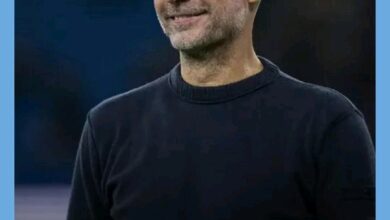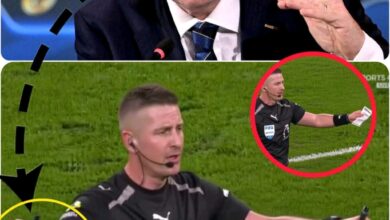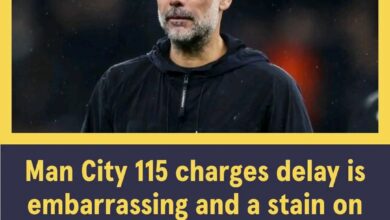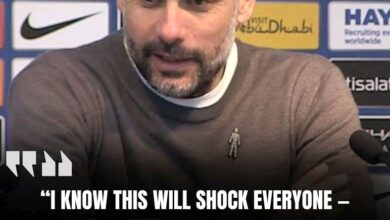Ex-PGMOL chief calls for VAR change as ‘Chuckle Brothers’ blasted over Man City vs Liverpool controversy
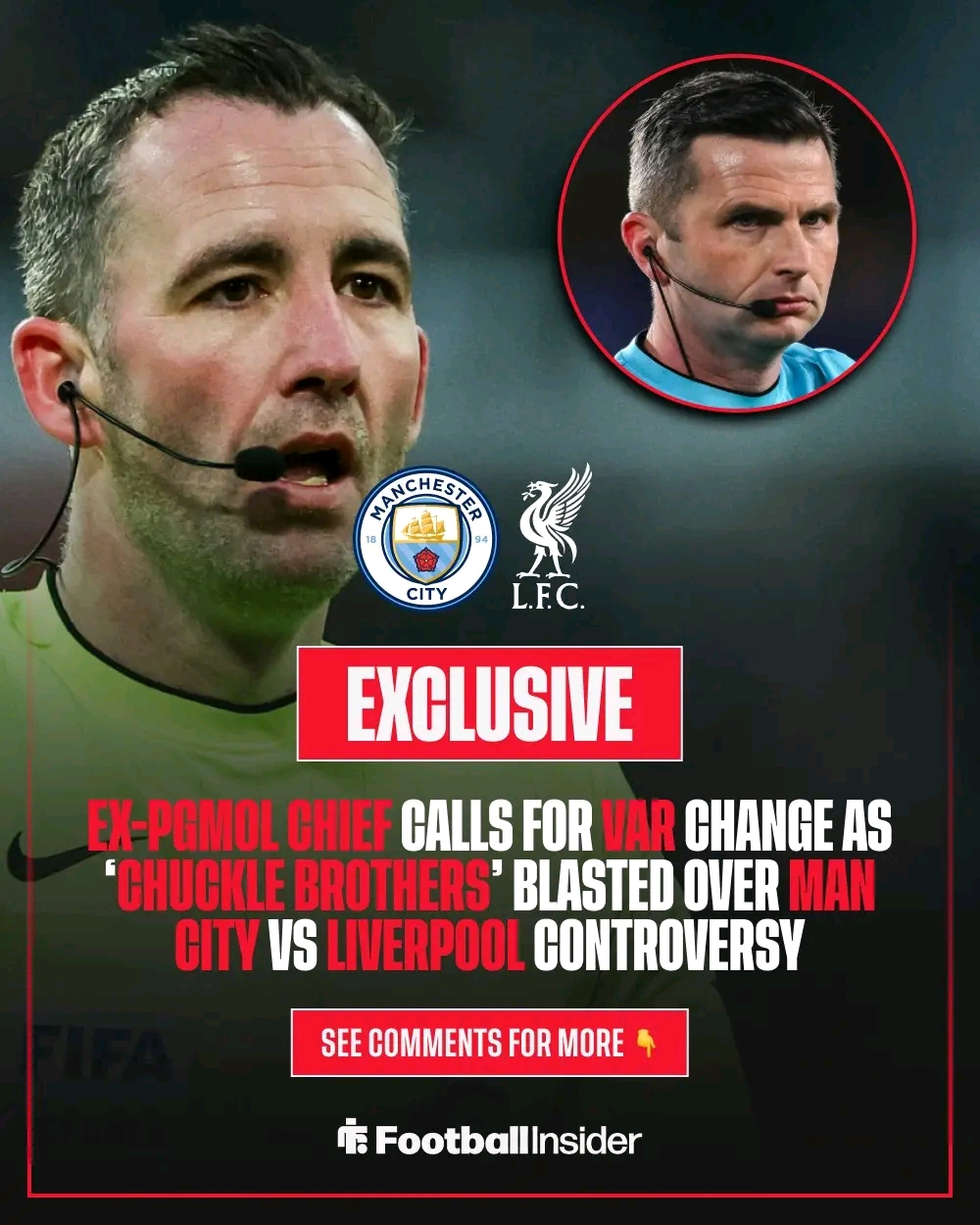
Keith Hackett Calls for VAR Reforms After Manchester City vs Liverpool Controversy: An In-Depth Analysis. The Premier League match between Manchester City and Liverpool on Sunday, 9 November 2025, ended in a 3‑0 victory for City. Yet the result, while decisive on the scoreboard, has ignited an ongoing debate over the role and efficacy of Video Assistant Referee (VAR) technology in English football. At the center of the controversy were two pivotal moments: a penalty awarded to City in the 11th minute for a foul on Jeremy Doku and a disallowed goal by Virgil van Dijk of Liverpool. These incidents prompted a formal complaint from Liverpool to the Professional Game Match Officials Limited (PGMOL), calling into question the decisions made by referee Chris Kavanagh and VAR official Michael Oliver.
Former PGMOL chief Keith Hackett has since weighed in, arguing that the controversy highlights systemic flaws in the current VAR system and calling for comprehensive reforms. His criticisms are not only pointed but also illuminate wider concerns about officiating standards, the training of officials, and the transparency and consistency of VAR decisions. Hackett’s remarks, combined with Liverpool’s formal complaint, signal a potential turning point in the ongoing evolution of refereeing in English football.The Controversial Moments: Penalty and Disallowed Goal
The first major point of contention arose in the 11th minute of the match, when Manchester City were awarded a penalty following a challenge on Jeremy Doku. Replays suggested that the contact was minimal and did not clearly warrant a penalty under Law 12 of the Laws of the Game, which governs fouls and misconduct. The decision was immediately scrutinized by pundits, former players, and fans alike, prompting debates about the consistency and clarity of officiating standards.
Later in the match, Liverpool had a goal by Virgil van Dijk disallowed. The reason cited was interference with the goalkeeper’s line of sight by Andy Robertson. Liverpool lodged a formal complaint, arguing that Robertson did not actually impede the goalkeeper’s ability to make a save. They referenced Law 11, which defines offside and interference, suggesting that the VAR decision was a misapplication of the rules. The combination of these two decisions – one giving City a goal-scoring opportunity and the other negating Liverpool’s equalizer – highlighted what many saw as inconsistencies in the application of the Laws of the Game and the operational use of VAR. Hackett’s Critique: “Like the Chuckle Brothers
Keith Hackett’s commentary on the match was unusually blunt. He described the handling of the game by Kavanagh and Oliver as “like the Chuckle Brothers,” referencing the chaotic and comedic dynamic of the British comedy duo. This metaphor underscored Hackett’s perception that the interaction between the on-field referee and the VAR team was amateurish, disorganized, and unprofessional. In his analysis, Hackett argued that such errors are symptomatic of deeper structural problems: referees are often reluctant to overturn their initial decisions, VAR operators may lack specialist training, and communication protocols between the pitch and VAR room are inconsistent and opaque.
Hackett also highlighted that the current system does not prioritize expertise in VAR operations. Referees and assistants may have limited exposure to VAR processes, and there is no dedicated, full-time cohort of specialists tasked solely with reviewing video footage. He argued that this situation undermines the credibility of officiating and damages the trust that players, clubs, and fans place in the fairness of the game. Liverpool’s Formal Complaint: Rules and Fairness
Liverpool’s complaint to PGMOL, directed at head of officiating Howard Webb, emphasized that the disallowed goal was not only crucial in the context of the match but also indicative of a broader issue regarding the correct application of the rules. The club argued that Robertson did not obstruct the goalkeeper’s view, challenging the interpretation applied by Kavanagh and Oliver. By referencing Law 11, Liverpool sought to underline that the decision was not merely controversial but potentially incorrect under the official Laws of the Game.
While Liverpool conceded that the penalty decision did not ultimately cost them the match, they stressed the principle of fairness. Football, they argued, relies on consistent and accurate officiating. When such errors occur, regardless of the match outcome, they erode confidence in the governing system. This perspective reflects growing concern among clubs and fans that VAR, intended as a corrective tool, sometimes exacerbates inconsistencies rather than resolving them
The Premier League’s use of PGMOL to oversee referees and VAR operations is meant to ensure that decisions are fair, consistent, and transparent. VAR was introduced to correct clear and obvious errors in key match-defining situations: goals, penalties, red cards, and cases of mistaken identity. Ideally, VAR would act as a safety net for referees, providing an additional layer of scrutiny without disrupting the flow of the game or undermining on-field authority.
However, the City-Liverpool match exemplifies the challenges that have accompanied VAR implementation. Critics have long highlighted delays in decision-making, inconsistencies in interpretation, and opaque communication channels between referees, VAR officials, and fans. For example, in this match, the penalty and disallowed goal incidents demonstrated a lack of clarity in how rules are applied and how decisions are communicated.
Hackett’s criticism that referees are hesitant to change initial decisions points to a systemic issue: the psychological and institutional pressures on referees. Despite VAR guidance, referees may defer to their first instinct, fearing criticism for “overturning” themselves. At the same time, VAR operators may not possess the specialized experience needed to confidently overrule decisions, particularly in complex scenarios such as interference with the goalkeeper or marginal offsides.
Hackett has put forward a series of reforms aimed at addressing these structural issues. His suggestions include:Dedicated Full-Time VAR Officials:
Currently, VAR operators are often part-time referees or assistants rotated into VAR duties. Hackett argues that a specialist squad of full-time VAR officials would bring greater expertise, consistency, and accountability to the role. Full-time operators could focus on mastering video review techniques, decision-making protocols, and the nuances of high-pressure match scenarios. Clearer Delineation of Roles Between Referee and VAR
One of the challenges observed in the City-Liverpool match was confusion over who had ultimate authority. Hackett suggests that protocols should define more clearly when referees should rely on VAR guidance versus making independent judgments on the pitch.Consistency in Rule Application:
Hackett emphasized the need for standardized approaches to offside and interference decisions, particularly where goalkeeper obstruction is involved. This would prevent subjective interpretations from disproportionately affecting game outcomes
Current VAR procedures allow referees to review footage at pitch-side monitors, but Hackett argues that these protocols are inconsistently applied. Establishing clearer rules for when and how referees should consult monitors could reduce delays and improve decision accuracy. Enhanced Training Programs:
Training for both referees and VAR officials must be rigorous and ongoing. Hackett highlighted that interaction between referees and VAR operators in the City-Liverpool match appeared amateurish, suggesting deficiencies in professional development program. Implications for the Premier League and PGMOL
The controversy places considerable pressure on PGMOL and Howard Webb, its current head. The league must balance multiple objectives: preserving the authority of on-field referees, ensuring fairness and accuracy in decisions, and maintaining the flow and entertainment value of matches. Errors such as those in the City-Liverpool match can erode fan trust, provoke criticism from clubs, and reduce confidence in the competitive integrity of the league.
Hackett warned that unless reforms are implemented, similar errors will continue. He highlighted that the current model risks repeated mistakes, undermining the perception of officiating professionalism. Liverpool’s formal complaint, alongside Hackett’s public critique, illustrates that stakeholders are demanding accountability, transparency, and a demonstrable commitment to improvemenChallenges and Considerations for Reform
Implementing Hackett’s recommendations, while desirable in principle, is not without obstacles: Cost and Logistics: Creating a full-time squad of VAR specialists, providing comprehensive training, and upgrading monitoring technology represents a significant financial investment for the Premier League.
* **Complexity of Officiating:** Football is inherently fast-paced and fluid. Even with advanced VAR technology and specialist operators, subjective judgment will remain necessary in certain situations.
* **Potential Game Flow Disruption:** Increased reviews and more rigorous protocols could slow the game, frustrating players, fans, and broadcasters.
* **Authority Balance:** Expanding the power of VAR may inadvertently diminish the authority of on-field referees, creating new tensions in decision-making hierarchies.
Despite these challenges, Hackett and many observers argue that the long-term benefits—enhanced credibility, trust, and fairness—outweigh the costs and logistical hurdles
The City-Liverpool controversy is not an isolated incident. Since VAR’s introduction in English football, there have been repeated criticisms from players, managers, pundits, and fans. Common complaints include inconsistent offside rulings, controversial penalty awards, and confusing disallowed goals. These recurrent issues underscore the need for structural reform rather than ad hoc fixes.
Former players and managers have long argued that the spirit of the game is compromised when decisions appear arbitrary or inconsistent. VAR, designed as a corrective mechanism, has sometimes intensified the perception of error, particularly when communication is opaque, and rulings seem unpredictable. Hackett’s “Chuckle Brothers” comment captures the broader sentiment that officiating appears amateurish despite technological support, highlighting a disconnect between expectations and reality
Mistakes in officiating can have far-reaching consequences. In the Premier League, where margins between top clubs are often extremely narrow, a single penalty or disallowed goal can influence league standings, European qualification, and financial rewards. Persistent errors threaten competitive balance, potentially giving some teams an unintended advantage and undermining fairness.
Fan perception is equally critical. Supporters expect transparent, consistent, and accountable officiating. Repeated mistakes or controversial VAR interventions risk eroding trust, leading to cynicism and disillusionment with the league. Hackett and Liverpool’s criticisms reflect a broader call from all stakeholders: football’s integrity depends on getting decisions right consistently.l
If the Premier League chooses to act on Hackett’s recommendations, potential reforms could include:
1.Mandatory Pitch-Side Monitor Reviews: Ensuring that referees always consult the monitor for crucial decisions, with clear time limits to prevent excessive delays.
2.Dedicated VAR Specialists: Recruiting and training a permanent VAR squad capable of operating at the highest professional standards.
3. Transparent Communication: Making audio and video communication between referees and VAR teams publicly accessible or at least clarified to teams and commentators to improve understanding.
4.Standardized Rule Interpretation: Issuing detailed guidelines on offside, goalkeeper interference, and penalty decisions to minimize subjective variance.
5Continuous Professional Development: Instituting rigorous training programs for referees and VAR operators, including scenario-based simulations of complex match situations.
The ultimate goal would be to ensure fairness, improve credibility, and prevent mistakes that can distort competition outcomes
The Manchester City vs Liverpool match on 9 November 2025 has become a flashpoint in the ongoing debate over VAR in English football. The penalty awarded to City and the disallowed goal for Liverpool not only sparked controversy but also exposed weaknesses in the officiating framework. Keith Hackett’s criticisms, along with Liverpool’s formal complaint, emphasize the urgent need for systemic reforms.
Hackett’s proposals—specialist VAR operators, clearer protocols, better training, and improved transparency—aim to restore confidence in officiating and preserve the integrity of the Premier League. While challenges such as cost, logistics, and potential game flow disruption exist, the broader objective is clear: football at the highest level must be fair, consistent, and accountable. Mistakes, even small ones, carry enormous consequences.
The City-Liverpool incident may serve as a catalyst for meaningful change. Clubs, players, officials, and fans are watching closely. The Premier League’s response in the coming months could define the future of VAR in England, ensuring that technology serves its intended purpose rather than undermining trust and competitive balance. Without reform, the risk is clear: repeated errors will continue to challenge the credibility and fairness of the sport. With decisive action, however, English football can maintain its reputation for professionalism, integrity, and competitive fairness.







